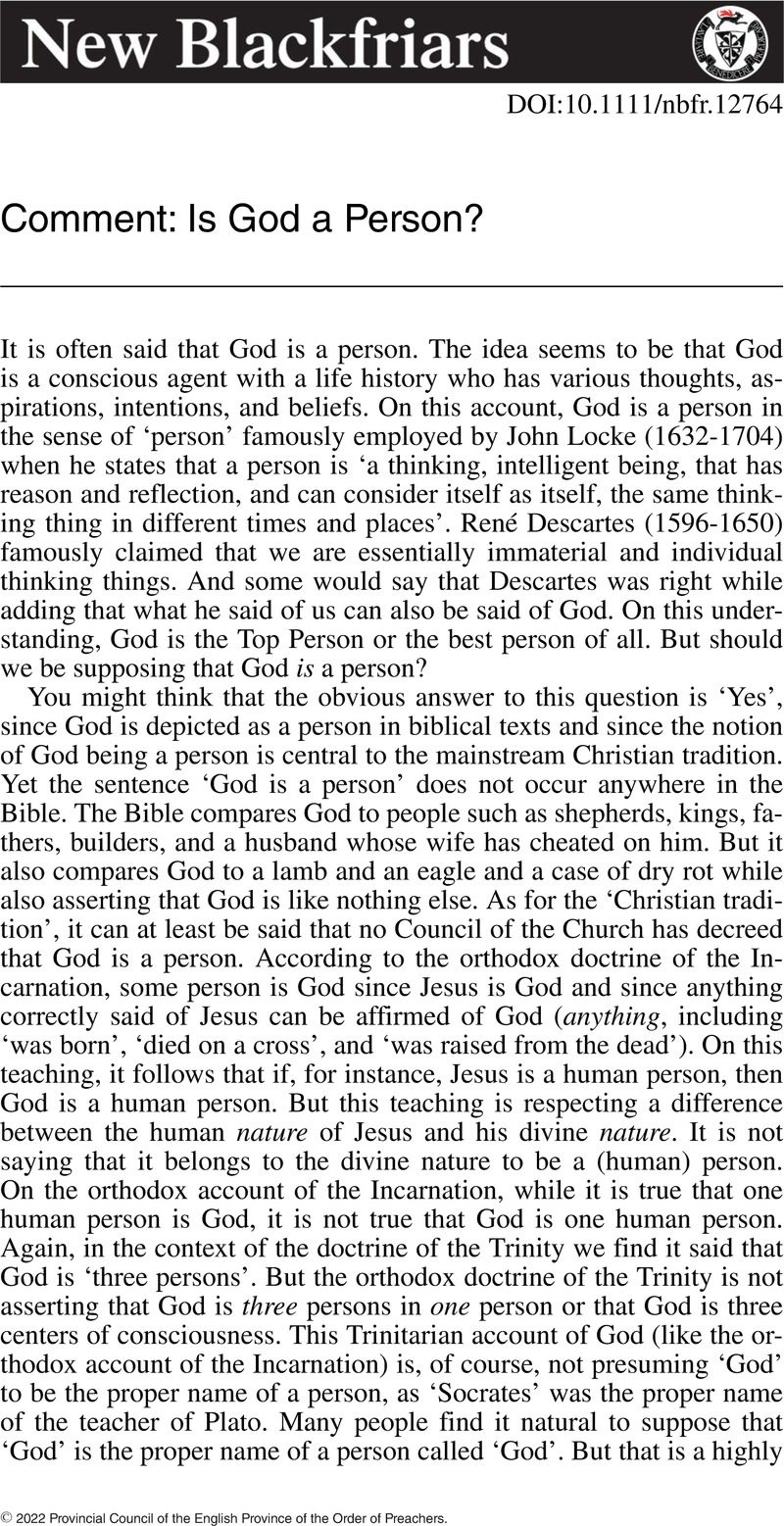Crossref Citations
This article has been cited by the following publications. This list is generated based on data provided by Crossref.
Ellis, Fiona
2023.
Naturalism, Supernaturalism, and the Question of God.
Topoi,
Vol. 42,
Issue. 3,
p.
711.
Cottingham, John
2023.
Spiritual Experience: Its Scope, Its Phenomenology, and Its Source.
New Blackfriars,
Vol. 104,
Issue. 1112,
p.
414.
Cottingham, John
2024.
The Humane Perspective.



